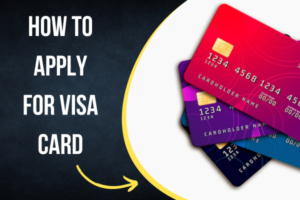Why Does My Credit Card Say No Payment Due

Why Does My Credit Card Say No Payment Due
If you’ve ever received a credit card statement that states “No Payment Due,” you might feel a mix of relief and confusion. While it may seem counterintuitive, this notification is not a cause for concern. In fact, it indicates a positive situation in which you are not required to make a payment at that particular time. In this article, we will delve into the reasons why your credit card statement might display “No Payment Due” and explore the implications of this status.
- Billing Cycle and Payment Due Dates:
Credit card companies issue statements based on billing cycles, which typically cover a specific period, such as one month. Within this period, you make purchases and accumulate charges on your card. Toward the end of the billing cycle, your credit card statement is generated, reflecting your transactions and the outstanding balance.
The payment due date specified on your statement is the deadline by which you are expected to submit at least the minimum payment to avoid penalties. However, if your statement shows “No Payment Due,” it means that your payment due date falls after the current statement’s closing date. As a result, you have no immediate obligation to make a payment.
- Timing of Transactions:
The “No Payment Due” status can also occur if you made purchases or incurred charges after the closing date of your previous statement. Since these transactions occurred after the billing cycle ended, they would not be reflected on the current statement, thus resulting in no payment being due.
For example, if your billing cycle ends on the 15th of each month, any purchases made between the 16th and the next statement’s closing date will be included in the subsequent statement, thereby deferring the payment obligation to the following month.
- Paying Your Balance in Full:
Another common scenario that leads to a “No Payment Due” status is when you have paid your credit card balance in full during the previous billing cycle. By clearing your outstanding balance entirely, you effectively eliminate any payment due for the subsequent statement.
Paying your balance in full has several benefits. It helps you avoid accruing interest charges on carried-over balances, improves your credit utilization ratio, and demonstrates responsible credit management. It’s always prudent to aim for paying your credit card balance in full whenever possible.
- Grace Period:
Credit cards often offer a grace period, which is the time between the statement’s closing date and the payment due date. During this period, you can settle your outstanding balance without incurring any interest charges. If you pay your balance in full before the due date, you effectively reset your grace period for the following statement cycle, which may result in a “No Payment Due” status.
Conclusion:
Receiving a credit card statement that says “No Payment Due” may initially raise questions and uncertainties. However, understanding the reasons behind this notification can alleviate any concerns. It typically indicates that you have either paid your balance in full, made purchases after the previous statement’s closing date, or your payment due date falls beyond the current statement’s period.
Remember, while no payment may be due at the moment, it is crucial to continue practicing responsible credit card usage. Regularly monitor your statements, track your spending, and pay your balance in full whenever possible. By doing so, you can maintain a healthy credit history and enjoy the benefits of using credit cards wisely.

